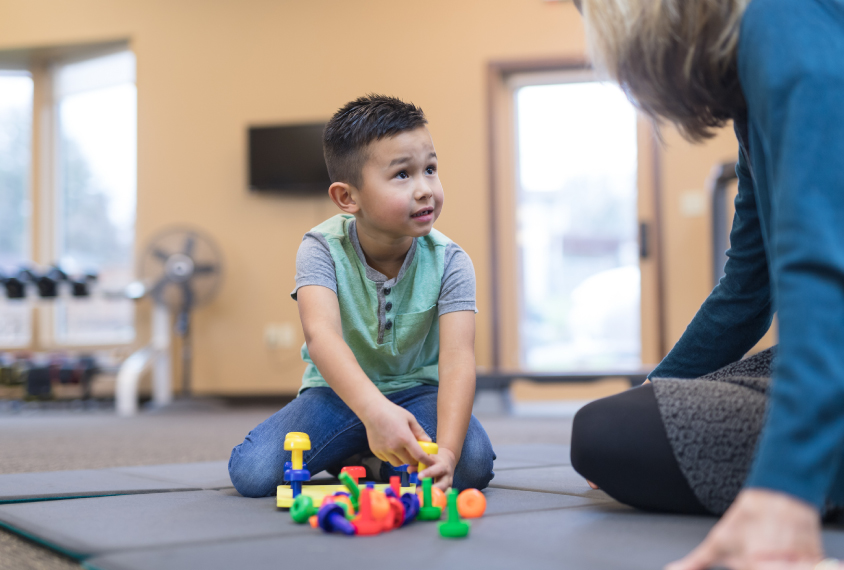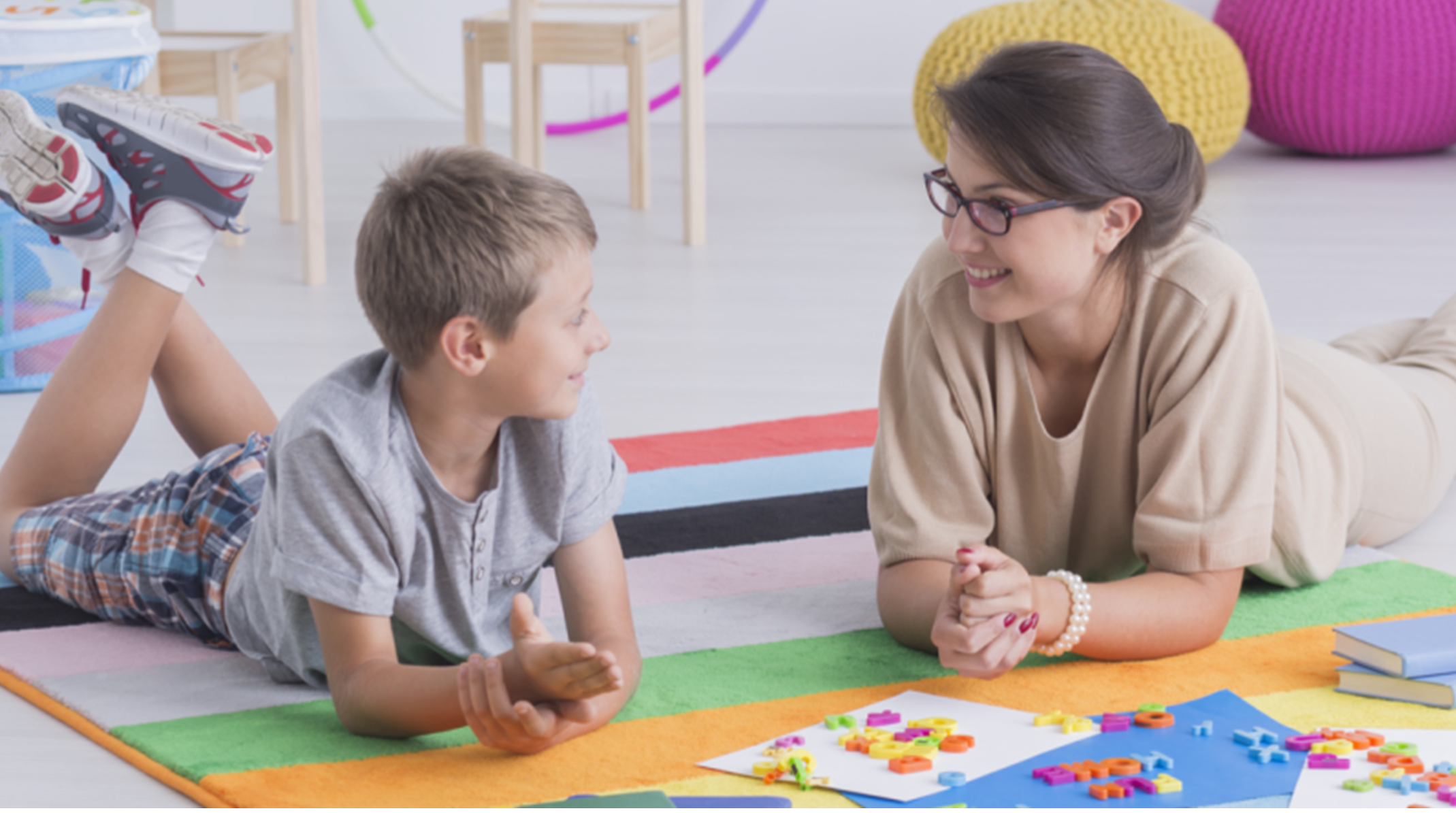Social language skills help children build and navigate relationships with their peers. Caregivers often wonder what social language skills their preschoolers should be practicing to prepare for social interactions at school.
1) Greeting others and introducing themselves.
It is important that a child can greet their peers by saying “hi”, “hello”, or using another greeting that feels comfortable to them. Then they should introduce themselves with a short sentence such as “My name is ____.” This skill is important so that your child has the tools to begin a conversation with new peers. Practice this skill with your child by having them approach familiar people with a greeting and an introduction. Do not forget to praise their attempts and successes by telling them that they are doing a great job.
2) Taking turns in conversation.
Just like taking turns in a game is important, so is taking turns in conversation. While we do not often think about it, conversations consist of each person taking a turn to talk. If you notice your child might have a difficult time taking turns in conversation, remind them that talking is like a game. We need to wait for the other person to finish before it is our turn. You may want to provide your child with a visual cue (pointing to your closed lips) to remind them to wait for their turn to talk. As mentioned before, pay close attention to when they are waiting and give them lots of praise for waiting so nicely for their turn to talk.
3) Making eye contact.
Making eye contact with others shows them that you are listening and that you are interested in what they are saying. If you notice that your child’s eye contact is inconsistent, you can remind them that looking at the person talking shows them that you are listening. Pointing to your eyes can also provide the child with a soft reminder to show good eye contact. Give your child a lot of praise when you notice they are using eye contact independently by saying, “Wow! You are doing great looking. Now I know you are listening to all my words.”
4) Listening to and responding to others.
Another way for a someone to know that you are listening to them is to respond appropriately to what they have said. For example, if a peer is talking about a red car walking outside, and your child responds with “where? I want to see the car too!”, then their peer knows that they were listening. You can practice this skill with your preschooler by monitoring your own conversations with them. Are they staying on topic? If not, provide gentle reminders about the topic of conversation, and model asking questions and using comments in conversation.
If you have concerns about your child’s social language skills development, contact us to speak with a speech-language professional today. Speech-Language Pathologists are trained to assess and recognize delays in social skills and can offer advice and effective therapy programs to help support your child’s development.





carbon steel flange manufacturers
Very good blog article.Much thanks again. Really Cool.
user-991906
awesome
hearing remedy
Thanks for your own labor on this website. My mum takes pleasure in going through investigation and it’s really easy to see why. My partner and i hear all about the lively means you convey insightful guides via your web site and in addition encourage contribution from the others about this point and our own daughter has always been studying a whole lot. Have fun with the remaining portion of the year. Your performing a splendid job.
먹튀레이더
안전하게 게임하기 위해 꼭 필요한 사이트입니다! 방문하다 먹튀레이더
Lucien Ewelike
Good
500 ka redeem code
Your blog is a breath of fresh air. TamilBlasters Com
MBBS Fees Structure in Sikkim
Plan your medical education budget effectively with insights into the MBBS Fees Structure in Punjab.
Top MBBS Colleges in Kerala
Top MBBS Colleges in Orissa offer comprehensive learning opportunities for students.
Raja Luck App
Install the Raja Luck App and explore exciting gaming options.
account binance aperto
Your point of view caught my eye and was very interesting. Thanks. I have a question for you.
Ntigzoyp
Explore the ranked best online casinos of 2025. Compare bonuses, game selections, and trustworthiness of top platforms for secure and rewarding gameplaycasino.
lc9uq
generic clomid online how to get clomid get cheap clomiphene prices get cheap clomid without a prescription clomiphene tablets price in pakistan can you get clomiphene prices where to buy generic clomid tablets